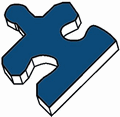Projects
Goals and Scope
Today’s projects try to bridge the famous gap between research (e.g., academia) and practitioners (e.g., industries). Projects, in fact, can allow the research community to practice with their research ideas in real industrial environment while, at the same time, can raise the need for new and different research inspired by the needs of industry. The Projects track provides an opportunity for researchers involved in ongoing and recently completed research projects (both national and international) related to the themes of the conference to present their projects and disseminate the objectives, deliverables, or outcome of these projects. Hence, on one side, the Projects track offers the possibility to project participants to share and disseminate their project results. On the other side, it allows the participants to get a better insight in which research projects are currently going on within the field of software maintenance and reengineering. The Projects track represents a consolidated forum where projects, researchers and industrial practitioners can share experience, ideas and knowledge.
Topics
The topics of interested of the Projects track correspond to the ones of the conference. All submissions describing projects that involve aspects concerning the software maintenance and evolution are welcomed. Special interest goes to submissions that describe how the projects results have been assessed and evaluated.
Eligible Projects
The types of projects that are eligible for presentation in this track are manifold:
- Projects funded international, national or local funding organizations, or even by individual universities and industries;
- Projects focused on fundamental research, applied research or be more industry-oriented;
- Projects carried out by an international consortium of partners or projects might involve partners of the same country.
Paper Organization
Each submission should clearly indicate:
- The name and acronym of the project
- The source and amount of funding
- The list of participants (with names and affiliations) involved in the project
- The link to the official project web site
- The status and duration of the project
- Detailed description of goals of the project
- Description of the (expected) achievements and (expected) outcome of the project
- Detailed explanation of the relevance of the project (or one of its workpackages) to the themes of the conference
- References to related work or related projects
Paper Format
Each submission must be a 4-page paper formatted according to the IEEE Conference Publishing Services formatting instructions (i.e., the same used from the main conference). All submissions must be in English. All submissions will be peer reviewed by three members of the international Program Committee of the Projects track. The reviewers will assess the completeness, the quality of and the relevance of the submission for the target audience. Please submit by 28th October 2013 (abstract by 21st October) via EasyChair (select “Project Papers” track): https://www.easychair.org/conferences/?conf=satcsmr18wcre21.
Each accepted submission will be part of the conference proceedings. At least one author of the accepted submission will be registered at the conference and present the accepted submission during the Projects track.
Chairs
Jens Krinke, UCL, UK
Rocco Oliveto, University of Molise, Italy
Program Committee
- Alessandra Bagnato, Softeam - R&D Department, France
- Alessandro Marchetto, FIAT Research Center, Italy
- David Lo, Singapore University, Singapore
- Earl Barr, University College London, UK
- Giulio Antoniol, Ecole Polytechnique de Montreal, Canada
- Julia Rubin, IBM Research, Israel
- Leonardo Mariani, University of Milano-Bicocca, Italy
- Marco Autili, University of L'Aquila, Italy
- Mark Grechanik, University of Illinois at Chicago, USA
- Martin Pinzger, University of Klagenfurt, Austria
- Radu Marinescu, Politehnica University of Timisoara, Romania
- Suresh Thummalapenta, IBM Research, India
- Tanja Vos, Universidad Politecnica de Valencia, Spain






